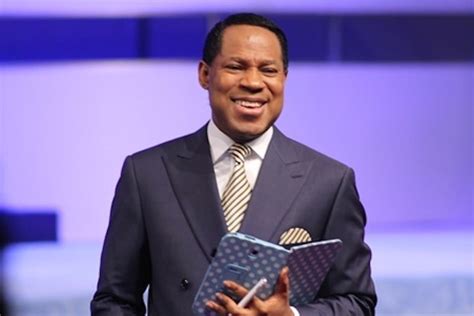A Quote by Charles Spurgeon
The Word of God is the anvil upon which the opinions of men are smashed.
Related Quotes
The words and lives of Christian men must be in continual process of reformation by the written Word of their God. This means that ecclesiastical traditions and private theological speculations may never be identified with the word which God speaks, but are to be classed among the words of men which the Word of God must reform.
Holy men of old were moved upon by the Holy Spirit and the revelation given to them is God's Word in the Holy Scriptures. Is God speaking any less today through holy men called of God to bring a message through revelation to this generation? ... We wave our Bibles and cry, 'This is the Word of' God.' Indeed it is God's Word, but the Holy Spirit yet brings revelation to this generation today that is no less God's Word... The prophet is not a method that God uses; but in fact is the only method he uses to speak to this generation.
If men act upon the teaching of the Word of God, and as proportionately men live according to the teaching and commands of the Bible, so they have in practice a sufficient psychological base. I will find you a man dealing with psychological problems on the basis of the teaching of the Word of God, even if he never heard the word psychology, or does not know what it means.
Destiny ... a word which means more than we can find any definitions for. It is a word which can have no meaning in a mechanical universe: if that which is wound up must run down, what destiny is there in that? Destiny is not necessitarianism, and it is not caprice: it is something essentially meaningful. Each man has his destiny, though some men are undoubtedly "men of destiny" in a sense in which most men are not.
The wisdom of literature is quite antithetical to having opinions. 'Nothing is my last word about anything,' said Henry James. Furnishing opinions, even correct opinions - whenever asked - cheapens what novelists and poets do best, which is to sponsor reflectiveness, to pursue complexity. Information will never replace illumination.
I do not deny God, because that word conveys to me no idea, and I cannot deny that which presents to me no distinct affirmation, and of which the would-be affirmer has no conception. I cannot war with a nonentity. If, however, God is affirmed to represent an existence which is distinct from the existence of which I am a mode, and which it is alleged is not the noumenon of which the word I represents only a speciality of phenomena, then I deny God, and affirm that it is impossible God can be.
Each of those churches shows certain books, which they call revelation, or the Word of God. The Jews say that their Word of God was given by God to Moses face to face; the Christians say, that their Word of God came by divine inspiration; and the Turks say, that their Word of God (the Koran) was brought by an angel from heaven. Each of those churches accuses the other of unbelief; and, for my own part, I disbelieve them all.
Men talk of "the mistakes of Scripture." I thank God that I have never met with any. Mistakes of translation there may be, for translators are men. But mistakes of the original word there never can be, for the God who spoke it is infallible, and so is every word he speaks, and in that confidence we find delightful rest.




































